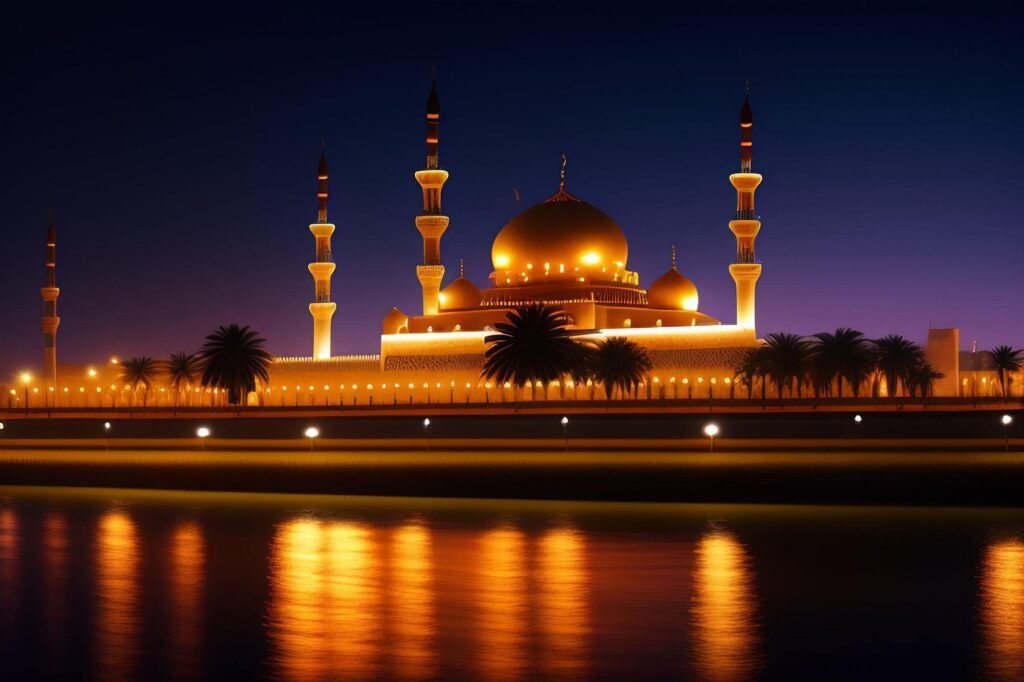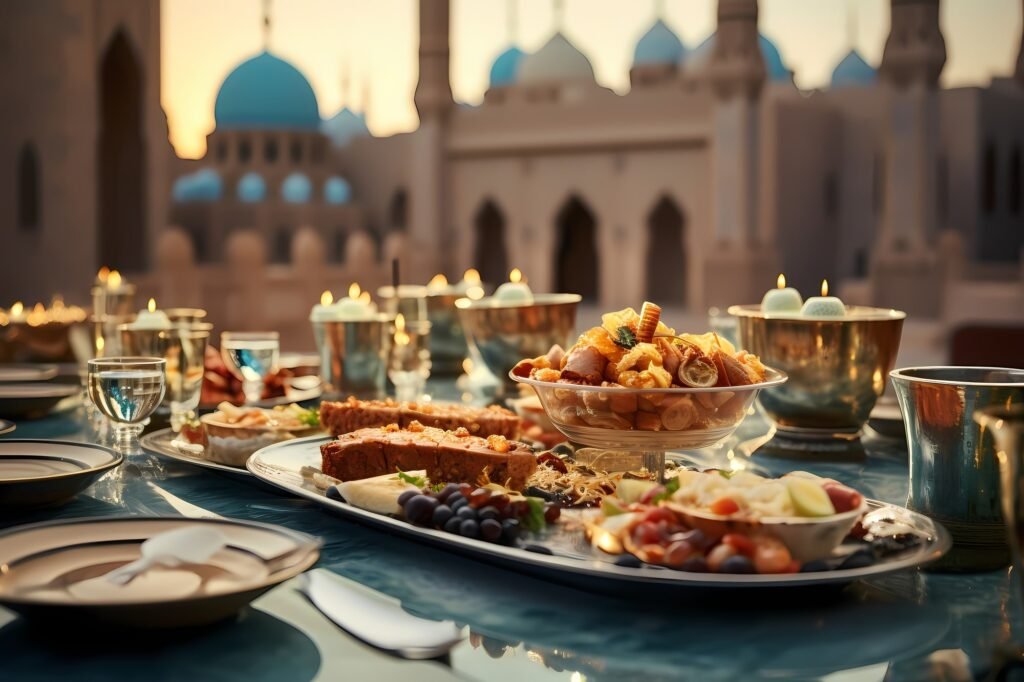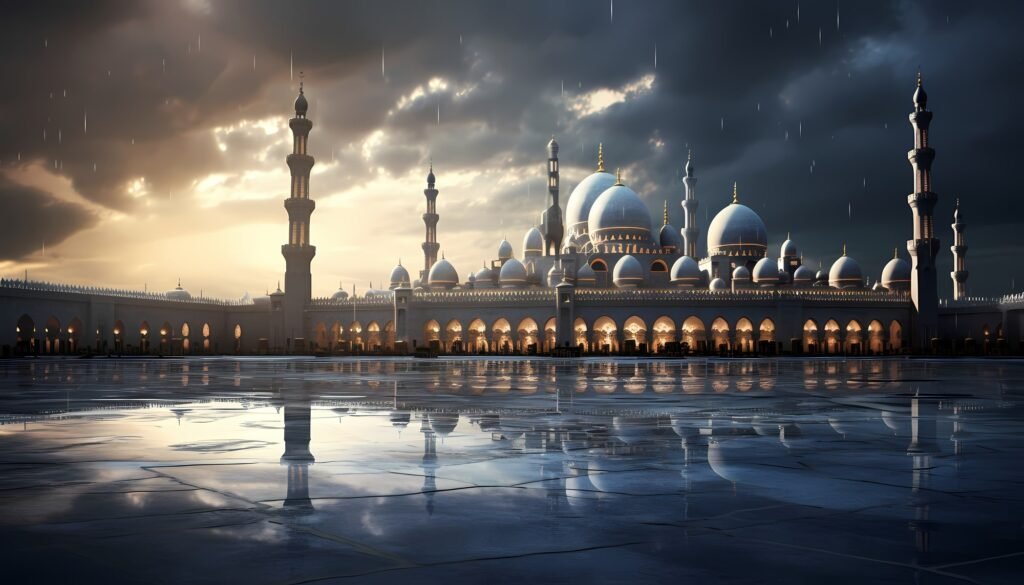Holy Prophet Mohammad “Yathrib to Medina, A Journey of Peace and Hospitality”
Yathrib: The Land of Suffering and Transformation
His name was Taiba, but the Arabs called him Yathrib.
In Arabic, Yathrib is called the place of suffering and disease. That was the thing. Also, the highest rainfall in all of Arabia used to be in this area. So poisonous substances were produced in the valley; whoever stepped into the taiba would get sick, but then there
They came to me, say the researchers. It was the first week of August 622, but some believe it was the month of October.
When the Holy Prophet Mohammad (peace be upon him) entered Yathrib after staying in Quba for fourteen days, the girls of Banu Najjar welcomed him with a bang. One thousand three hundred and eighty years later, one month and 23 days later, we were standing right there; there were traces of an ancient fortress in front of us.
When the Holy Prophet Mohammad (peace be upon him) moved on from here, Yathrib became Medina and Tayyaba, and then this city became the centre of peace, faith, healing, and acceptance in the world. It feels like you’re within its limits. As the slugs walk on the coals, they come to a valley where the soft leaves of roses are woven and the air is born from the nectar of amber and musk.
The trees around the world make oxygen by day and carbon dioxide by night. Except in Madinah, it is unlettered. Dr. Sahib recited a verse in Arabic: “Wow what a delicate feeling and the smell of thousands of millions of flowers. The poet said, “If you do not find peace in Medina, then where will you find it? If your prayers are not accepted in Medina, then where will you be?”
The Prophet’s Arrival: Welcomed by the Ansar
The Ansar were eagerly waiting for the Prophet; they used to leave their homes every morning and come out of the city and wait for him. “Your Saviour has come!” he shouted, running through the streets. Fourteen days later, when he left for Medina, hundreds of people were walking on the right and left. These were the Ansar. The Ansar cast their eyes in the way of Allah.
He gave his companions a share of his houses, fields, gardens, and shops, and in return, he received the Holy Prophet Mohammad. History will never forget that evening of Haneen when Allah’s Messenger (may peace be upon him) gave more than the share of wealth to nine Muslim makkis. Some Ansar disliked this division. No power in the world can take away this honor from the people of Medina.
Hospitality Eternalized: Every Guest a Mohammad, Every Companion a Siddiq
The Ansar were hospitable and loved the Holy Prophet Mohammad (peace be upon him) very much.
Even today, when the citizens of Medina see a stranger, they call him Mohammad and the companion, or Siddiq, so this is the only city in the world in which every guest, every stranger’s name is Mohammad, and every companion is Siddiq.
The Ansar glorified the Holy Prophet Mohammad, and his descendants are serving the guests of the Holy Prophet Mohammad. During the month of Ramadan, the Prophet (peace be upon him) comes to the Masjid Al-Madinah with all the food items. The banquets are laid out, and the children of the hosts stand in the hallways, pillars, and doors of the Prophet’s Mosque, whichever guest appears.”
They invite him for Iftar by clinging to his legs. When the guest accepted the invitation, the light spread on the host’s face; if he refused, the host’s eyelids became wet. When I entered the Prophet’s Mosque, a seven-eight-year-old child clung to my leg and said with great love, “Uncle, uncle, you will sit with me. There is a gate near Roza Athar.
Bab Jibrail used to stay in Hazara Mubarak of Umm Al-Mu’minin Hazrat Ayesha (may Allah be pleased with her). It was the time of Iftar; a few dates in the house and a half cup of milk were served to her. Hazrat Bilal used to stand for the Adhan; then she used to say, ‘Ayesha (may Allah be pleased with her), see if there is any traveller near Bab Jibrail. As soon as I reached Bab Gabriel, everything from my toenails to my thigh bones turned to stone, and I sat there. I put my hand on my heart and thought, Today is also Ramadan.
A few minutes later, maybe. Even today, the Holy Prophet Mohammad (peace be upon him) would ask ‘Aisha, “Look, there are no pilgrims outside,” and the Umm Al-Mu’minin would say, “O Messenger of Allah, there is a traveller sitting outside, looking poor in appearance, sad, embarrassed, tired, not having the courage to ask, a beggar but not having the courage to ask; people come here with crutches.

